As I’m chatting about Mexican food with Pellizco’s chef and director, Danny Pinch, we get into the challenges of packing tacos for delivery orders. I bring up popular Neepsend restaurant Piña, and mention how they’d briefly tried to discontinue tacos. Their announcement on Instagram was met with a swift and passionate outcry from followers, leading to tacos staying on the menu. “I remember that,” Danny says. Minutes later, a man walks past our window in Dyson Place. “I think that’s the owner of Piña!” Danny says, wondrous and spooked.
This moment encapsulates so much of what I’m learning about Sheffield’s food scene. In a city fiercely loved for its independent businesses, hospitality is no different. It’s a tightly woven web of traders, suppliers and venues, where everyone knows each other and has crossed paths several times over the years. In an increasingly difficult economic climate, these businesses are having to constantly innovate and try new things, and when they misstep, the locals don’t hesitate to let them know about it, either online or by voting with their feet.
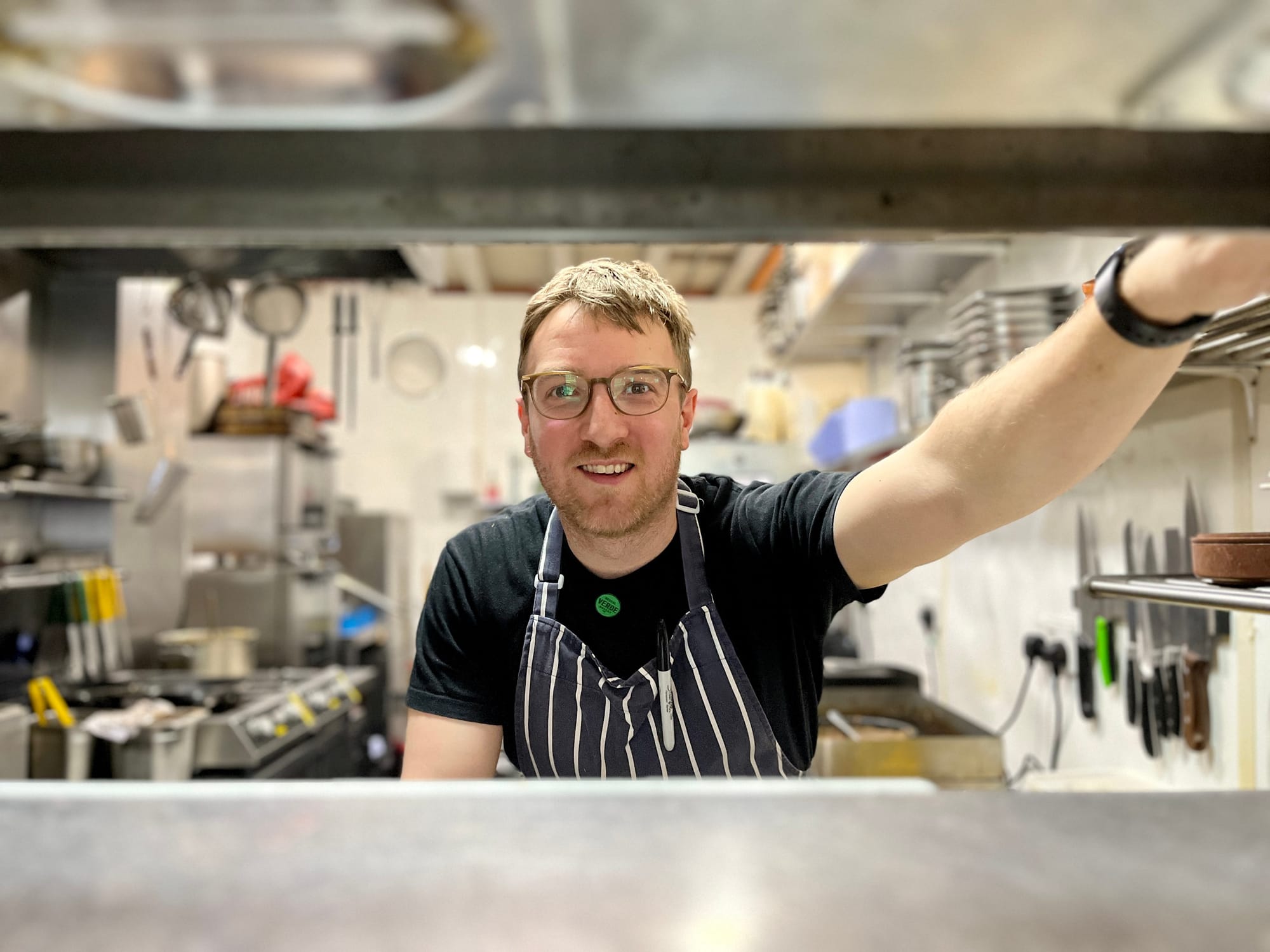
As the final remnants of Fargate’s ill-fated Container Park are removed and dispatched to storage, a big new food hall, Cambridge Street Collective, prepares to open in October 2023. The newest venture by Matt and Nina Bigland, the married duo behind the ever-popular Cutlery Works in Neepsend, Cambridge Street will join Kommune, Sheffield Plate and the criminally underrated Moor Market as a foodie destination in the city centre. Meanwhile, co-working spaces and venues like Union St, Tramshed and South Street Kitchen regularly feature pop-ups for lunch and dinner. And the arrival of spring means the return of outdoor markets in Nether Edge and Sharrow Vale, in addition to those at Pollen, Quayside and the almighty Peddler. The upshot of all which is this: small food traders are everywhere.
I wanted to know more about the day-to-day life of a food trader. What did they think the future is for the city’s food scene, and how do they feel about yet another food hall in town? Speaking to both them and venue operators, a clear theme emerged: Sheffield’s “street food” (for lack of a better word) scene is popular and growing. It’s a promising antidote to the despair felt at yet another high street shop withdrawing from the city, and is illustrative of the creative, independent businesses the city excels at and adores. That being said, a handful of traders tend to dominate, poor council and management decisions can have a negative impact with long-lasting consequences for fledgling businesses, and it can be hard to break into the scene as a newbie. More could be done to encourage local talent and increase the diversity of food on offer.
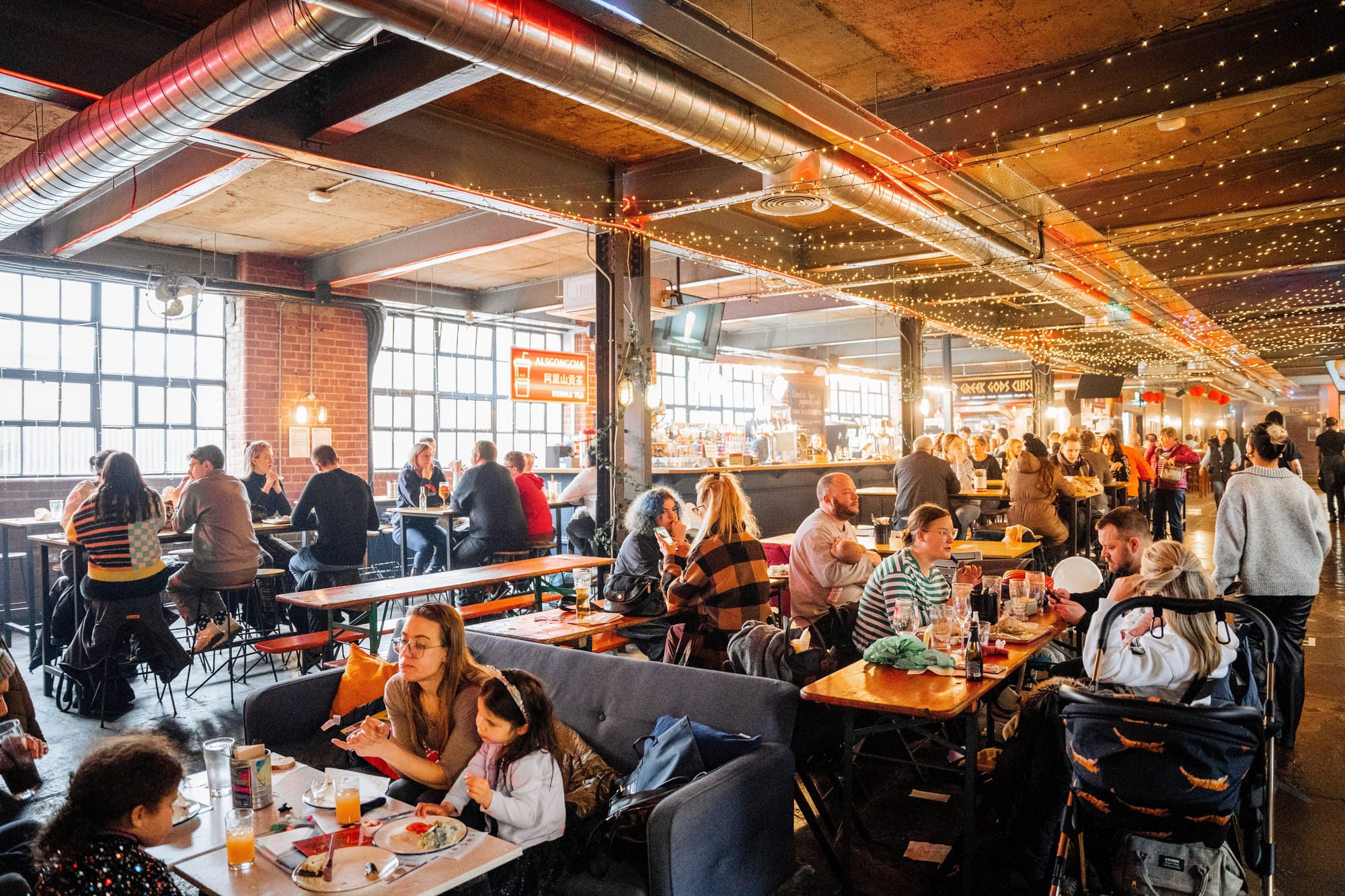
I was also surprised to see the food hall itself emerge as a nexus of Sheffield’s food economy. Not only does it have the power to revitalise maligned neighbourhoods, it’s also an important incubator for local talent, serving as a low-risk, high-volume launchpad for small businesses to refine their offering before taking the leap into opening their own bricks and mortar restaurant. But, with only a handful of big venues in town, their decisions have a big impact on the city. (The word curation comes up a lot.) If a vendor-trader relationship sours, it creates a great deal of stress and tension. Finally, with traders having to travel between Sheffield, Leeds, Manchester and Birmingham to make a living, there is the question of how food halls can help Sheffield’s food scene step out of the shadow of its larger, more affluent neighbours.
Nurturing local talent
Starting a food business is a big and stressful undertaking. I say this as someone who ran one of my own for several years before coming to the conclusion that continuing would eventually lead me to personal and financial ruin (I once showed up to an event where I had to serve upwards of 600 smoothies and realised I’d forgotten all the blender lids. Not recommended). A huge number of variables — weather, footfall, suppliers, stall placement — affect already razor thin margins.
The vast majority of the traders I spoke to in Sheffield actually started their business during or shortly after lockdown. Danny, who’d previously worked as a chef, did various pop-ups pre-covid, including at the co-working space and café Union St. During the first lockdown he sold food from his van, which was parked on his dad’s drive.
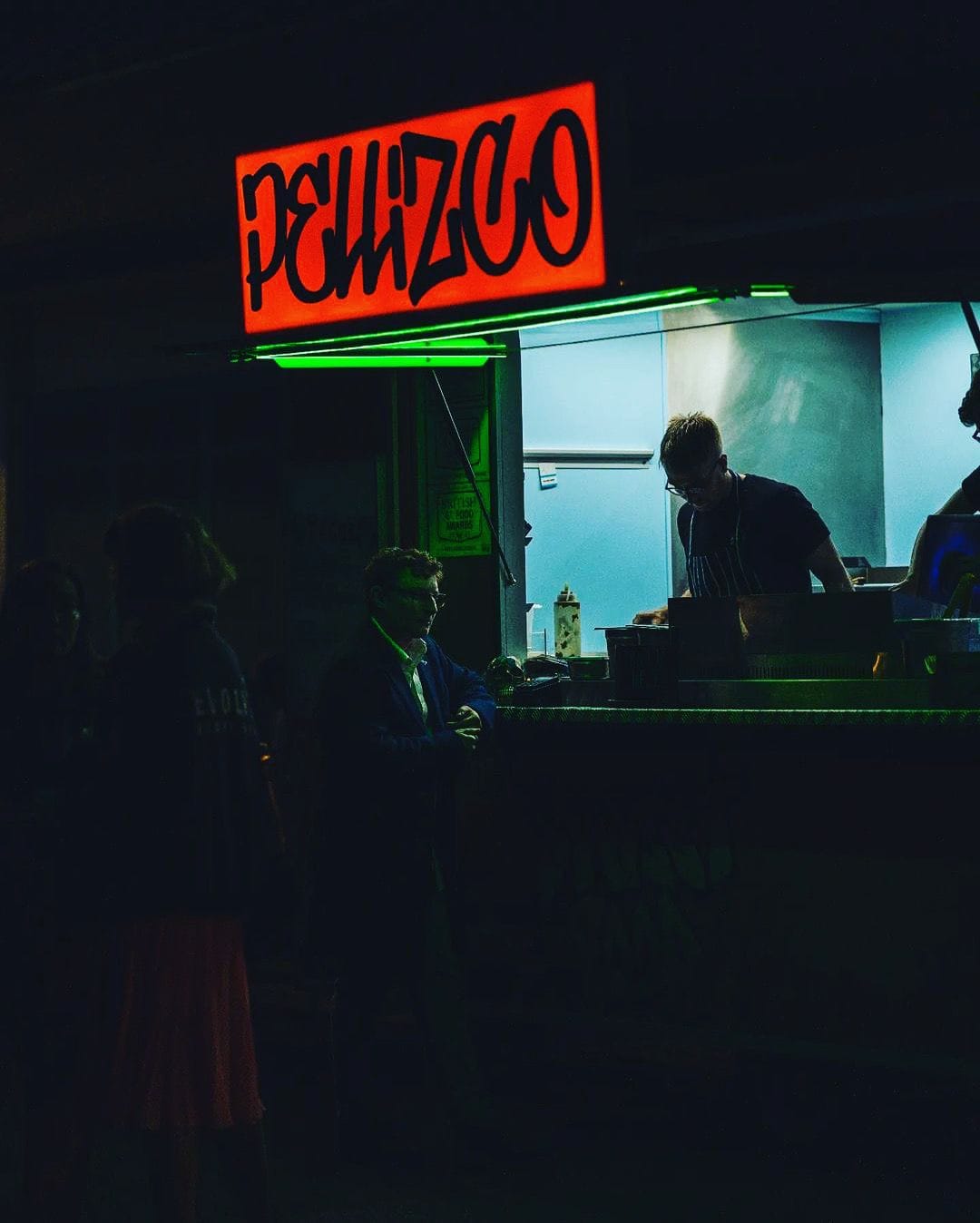
“People were bored,” he tells me. “They were walking over and getting food and eating it while walking back. It was early lockdown entertainment.” He decided to focus on Mexican food during this time and during the winter lockdown, served food from his van in Dyson Place. Finally, in May 2021 he was approached by Matt and Nina from Cutlery Works and 18 months later opened his own restaurant in Dyson Place.
Holly, who runs the vegan food business Icarus & Apollo, also started at the beginning of lockdown. Fresh back from travelling, her second ever event was the day the PM made the lockdown announcement. She turned up only to find she had to turn around and go home. She and Danny are friends but unlike him, she has no desire to run a restaurant — yet.
While the different traders I spoke to all had varying opinions on food halls and the relationship with venue operators, one thing becomes clear: they are spaces that play a crucial part in fostering and growing culinary talent. Street food traders who “graduate” to a busy food hall can test their mettle, running the food part of a restaurant without having to worry about marketing, service staffing, or billing and software issues. The cost? Usually a commission-based lease, with a percentage of takings (hovering around 20% but variable from place to place) going to the venue. Matt B. explains Cutlery Works do charge a base rent in case takings are low, but they work closely with the traders they host and have a full-time marketing team driving footfall to the venue. Venue operators are understandably careful about who they choose to work with. While leases are typically for a year, there is a break clause for both parties in case it’s not working out.
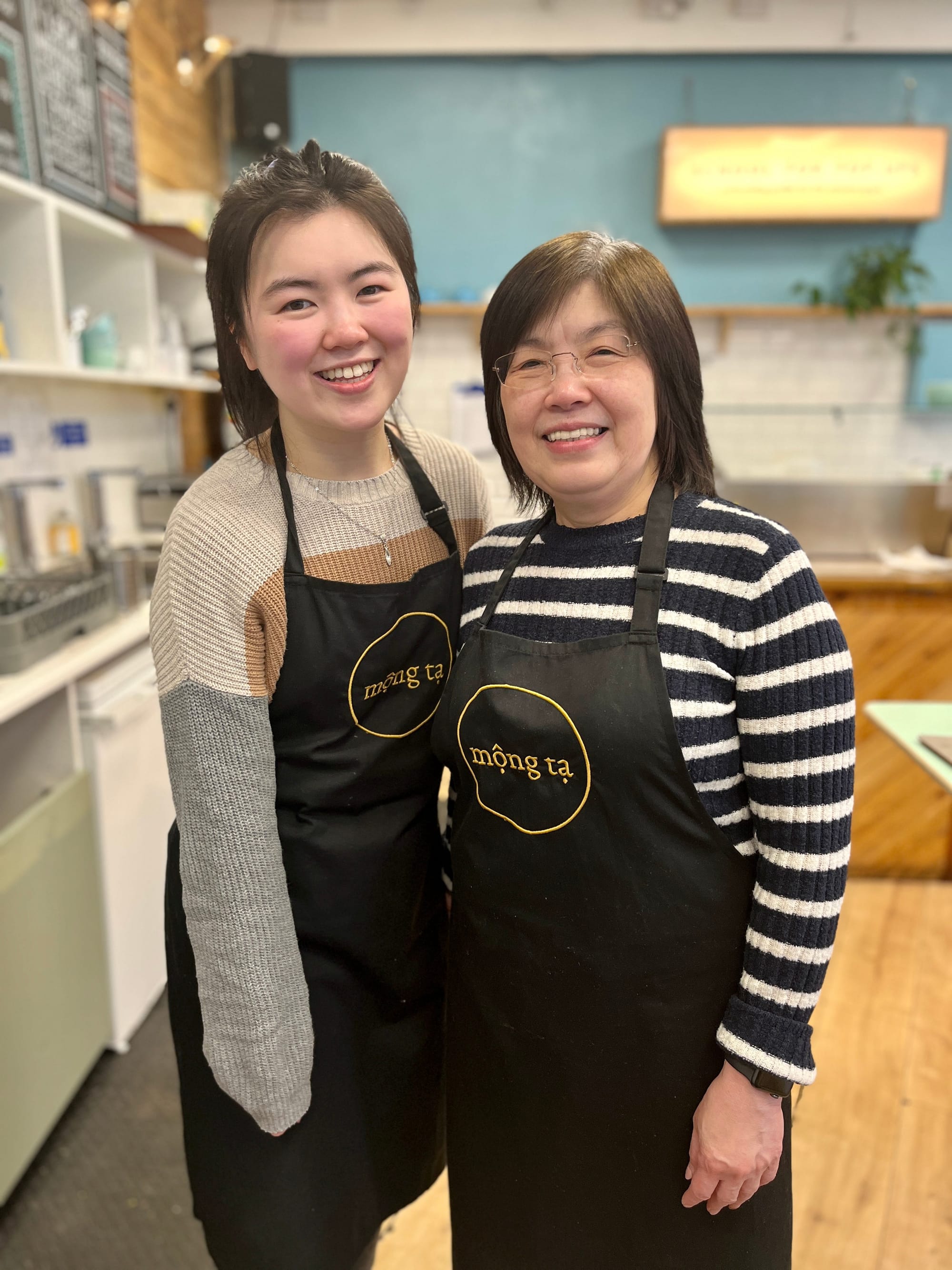
Generally talent starts in pop-ups then moves to markets, and finally settles in food halls or restaurants. Union St, mentioned above, is a co-working space and cafe run by Matt Hill, and the ground-floor café operates as a school for pop-ups, serving lunch in the city centre several days a week. They’ve hosted several businesses that have gone on to have long-term venues of their own, including Danny’s.
Several food hall traders I spoke positively about Peddler Market, saying they provided crucial encouragement and advice on how to develop their brand early on. They also praised the team’s work ethic and desire to make each Peddler different to the last one. “It helps make it special,” one trader tells me. But others said its popularity can make it impossible to break into, making it feel a bit like a clique. And another said they wished they would do more to host local traders as well as those from other parts of the country. Community-run markets like those at Nether Edge and Sharrow Vale are universally loved by traders, but don’t run frequently enough to sustain small businesses, meaning they have to find work further afield. As for council-run events like Sheffield Food Festival, one trader felt they were far too expensive to even bother applying.
Food halls are a much bigger commitment, an intermediate step between street food and restaurant. They generally require you to be open 5-7 days a week, and sometimes all day. For this reason, food halls generally wouldn’t sign a contract with a trader unless they have sufficient experience, and have already made a profile for themselves. But all goes well, a couple of years at a food hall can really accelerate your chances of getting a restaurant — if that’s what you want. Matt B. makes a point of mentioning Union St, saying it’s great for cultivating diversity and allowing people to develop their idea, working as a bit of an incubator space. Cutlery Works, he says, is really for vendors who’ve worked a bit longer and are ready to move to the next stage.
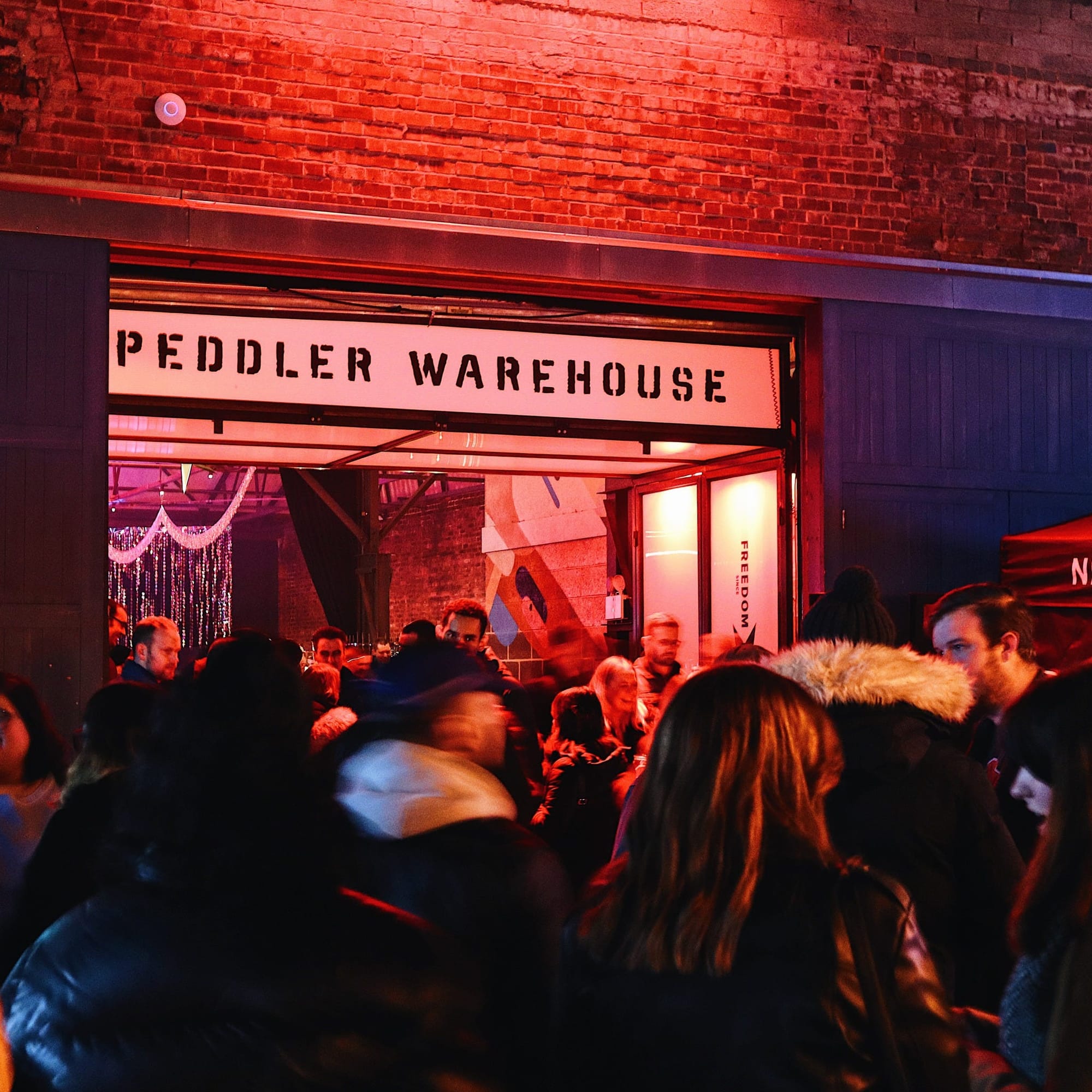
Danny credits Peddler and Cutlery Works with getting him to the place he is today: he says Peddler provided him with great advice on how to specialise and create a unique brand, and Cutlery Works allowed him to run a kitchen full-time that served the same volume of orders as a restaurant, but without having to worry about things like hiring service staff or getting payment software. The marketing and photography support they provided were invaluable for raising his profile, even if he had niggles about some of the management decisions.
When Cutlery Works set up an exclusive deal with UberEats, for example, they initially required all traders to sign up to it and pay the weekly fee. For some traders, delivery apps are a steady source of income. Holly from Icarus & Apollo said that, when she was based at Steelyard in Kelham, her deliveries often exceeded in-house orders. But for Danny, who serves tacos, the apps presented more of a challenge. Tacos don’t transport very well. That being said, he thought Matt and Nina ran a great and supportive service, and was quick to point out that using UberEats is no longer compulsory. A good relationship, all traders are keen to point out, is an ongoing conversation.
This is just one way that venue decisions affect trading. Others are opening hours, security, events, toilets, events held on-site and exclusivity. I didn’t hear anything too outlandish about Kommune or Cutlery Works. Generally traders who’d worked had a good relationship with the venues and felt they provided an important service, even if the agreement was structured in such a way that traders took on most of the risk. But this wasn’t the case everywhere. Emma and Jay, whose business Clapping Seoul operates from both Steelyard Kelham and Honey & Fig on Westfield Terrace, said that without collaboration and effort between vendors and management to create a fully functioning space where people can enjoy themselves, relationships are more than likely going to fail. “It doesn’t matter how good the vendor’s food is,” they added.

Placemaking and the city centre
When I ask Matt B. about the Container Park, he laughs. “The less said about that the better,” he says. I ask him if the council should be doing more to revitalise the city and he responds that they unfairly get a bad rep. “It’s a bit of a they-can’t-do-right-for-doing-wrong situation,” he says, and points out various initiatives that he thinks are brilliant, including the soon-to-open Pound’s Park. That being said, he says the city centre needs a catalyst. “There’s no soul at the moment, no culture, and lots of vacant properties.” It needs innovation and variety: “If you can’t find it, you make it,” he says. (It’s worth noting here that the aptly named social enterprise and community centre Foodhall recently closed its Brown Street doors due to funding woes, and the property remains vacant.)
If there’s a person who knows about placemaking, it’s Matt, a restaurateur who’s been operating out of Kelham since 2006. When he and Nina opened Cutlery Works in 2017, multiple people told them the venue would never work. It wasn’t family friendly, there was no parking, and Neepsend still had a reputation as a former red light district. “But people came because we were offering something unique,” he says.
Matt has long loved hawker markets in Asia (when we spoke, he was about to fly to Thailand); how they’re fuss-free places that are full of great food, that bring together people from all sorts of backgrounds, who will stop by any day of the week. He wanted to replicate some of that energy with Cutlery Works — but found he was hemmed in by the realities of British weather.
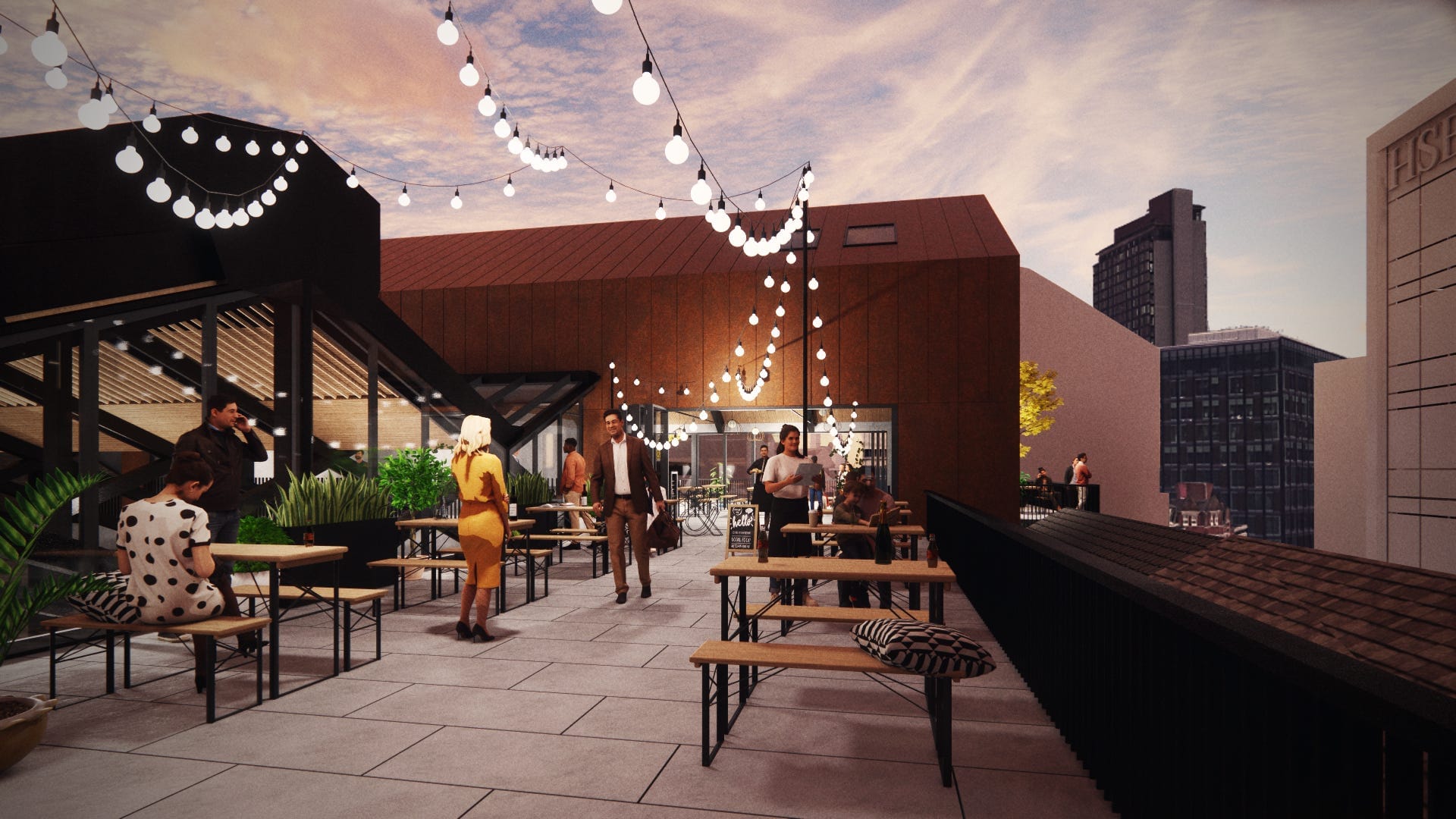
When I ask him how Cambridge Street Collective will vary, vibe-wise, from Cutlery Works, the conversation takes a turn I wasn’t expecting. “Street food has traditionally been a bit ‘white boy with tattoos deep frying things and calling it ethnic’,” he tells me. And indeed, many of the options on offer in food halls are dominated by the same options: loaded fries and fried chicken.
Matt has a new template in mind for Cambridge Street. He says that Sheffield’s huge Asian communities, particularly Chinese and Korean ones, contribute loads to the city. “The Asian community has subtly changed the housing, fashion and food landscape of the city in a way that isn’t often acknowledged,” he says. There are two cities, and they don’t interact with each other. Cambridge Street will be an attempt to bridge that cultural divide. The ground floor will be a traditional food hall, featuring the usual favourites with an additional bakery and a cookery school. The first floor, however, will be Asian-focused, with lower lighting and more of a futuristic, dark ambience. The top floor will be mixed but will feature dishes such as hot pot, which are theatrical and social but often intimidating to the uninitiated.
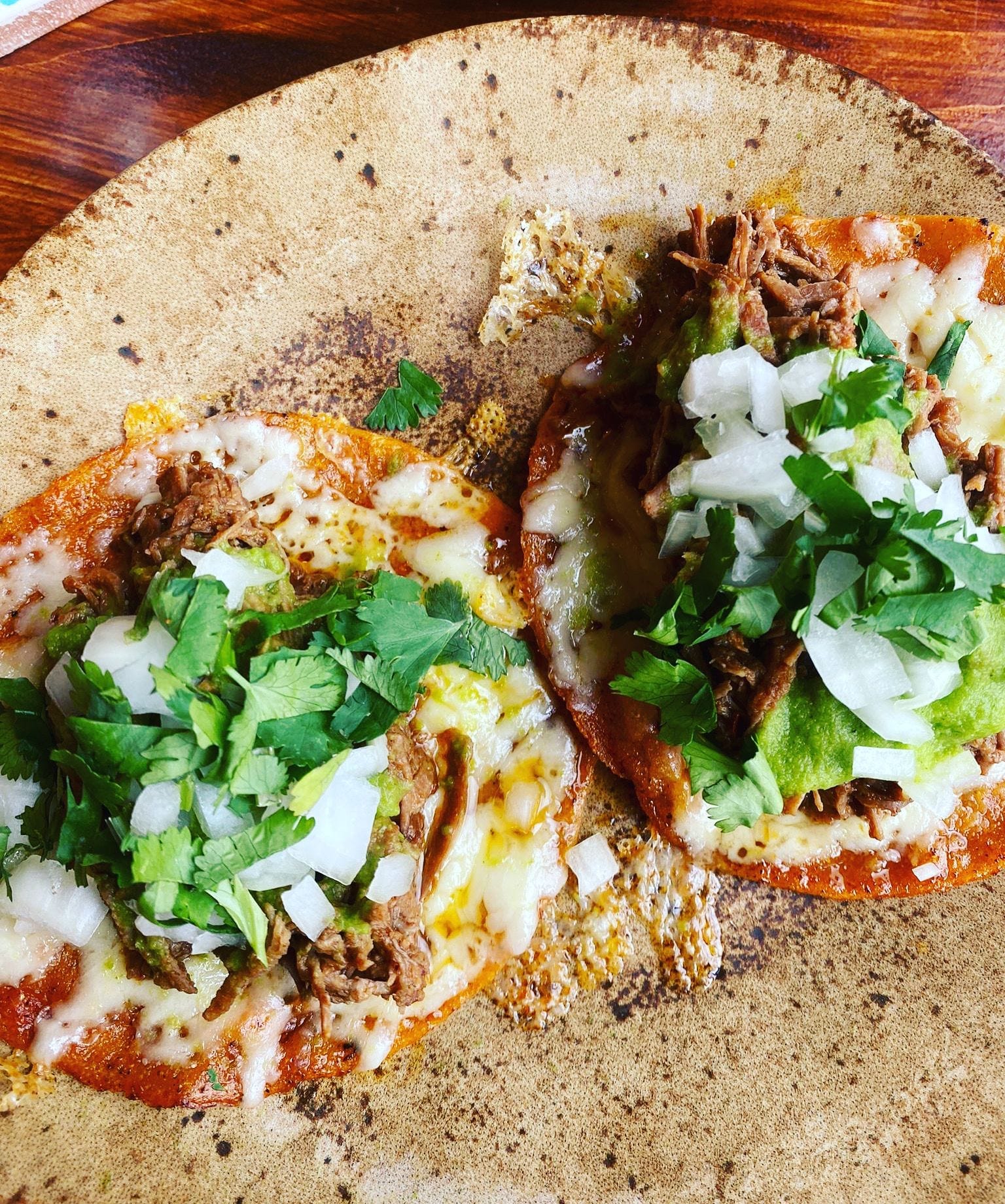
Several traders I spoke to did feel that Sheffield needed to up the diversity of its food offering. While the Moor does brilliant vegan Thai food and Nepalese, among other options, it’s only open for a lunchtime trade, and the dining area is utilitarian at best, not a place you’d meet friends and linger over drinks.
It doesn’t help that in a cash-strapped economy, people are more hesitant to take risks. Danny says price is often dictated by whoever is selling a substantial piece of food. This means the model of trying lots of small plates tends not to work when people are price conscious. “There’s a perception tacos aren’t as filling,” he says. “So you have to compete with the burger.” Holly tells me most of the vegan options are junk food, but she knows from her run with the apps that there’s an appetite out there for healthy vegan mains as well. If she’s tired of seeing the same food at events again and again, she says, surely the punters are too?
As the cost of living crisis, Covid and Brexit continue to influence the scene, some traders are returning to markets to help stay afloat. Even though Pellizco has seen a brisk trade since it opened, Danny realised he’d need to put together a calendar of markets and street food events to maintain his margins and meet the rising price of energy bills. And, because it’s hard to find someone who knows how to cook everything and drive the van with a trailer, this means he’ll probably be doing them himself. It’s not exactly what he had planned, he says, but it’s the way the industry is. And there’s even a dedicated taco festival taking place in Birmingham later this year, he tells me. “I couldn't really miss that,” he says with a shrug.
Comments
How to comment:
If you are already a member,
click here to sign in
and leave a comment.
If you aren't a member,
sign up here
to be able to leave a comment.
To add your photo, click here to create a profile on Gravatar.







